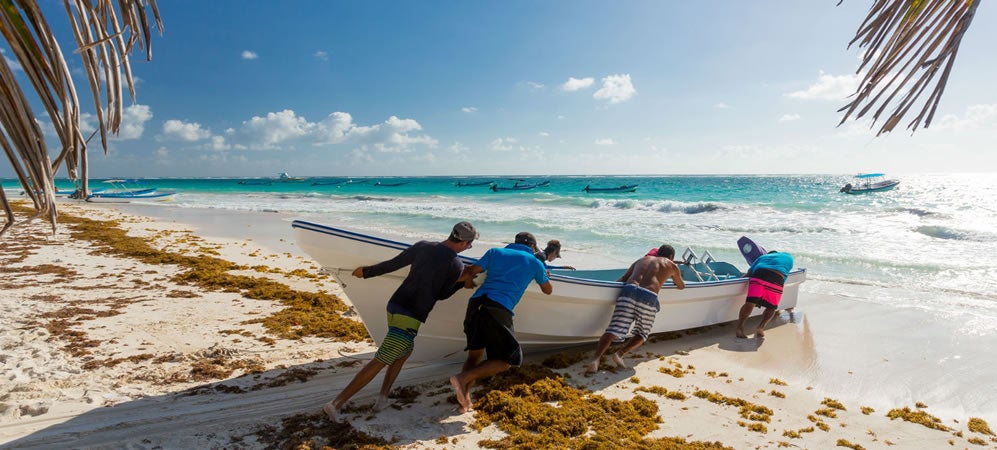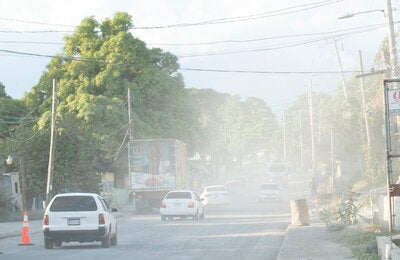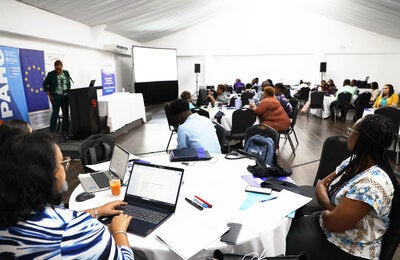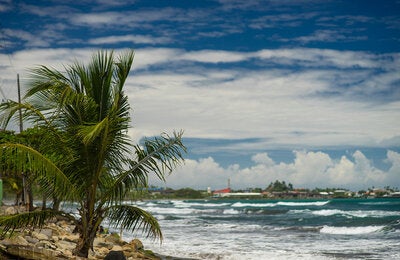About the Project
Caribbean islands and territories are becoming increasingly vulnerable to the adverse effects of climate change. Climate change affects not only the health and well-being of its citizens, but also their livelihoods, culture, and economies– posing a true existential threat.
In 2019, Caribbean Ministers of Health and Environment approved the Caribbean Action Plan on Health and Climate Change. This Plan, which was developed through a “country-driven process,” based on the region’s priorities and capacities, focuses on addressing the gaps identified by countries and strengthening health systems to be prepared and respond to climate threats.
The Action Plan is built on Four Strategic Lines of Action-Empowerment, Evidence, Implementation and Resources. The Pan American Health Organization (PAHO) in collaboration with its partners and donors is supporting Caribbean countries in implementing the Action Plan.
One of the entities from which funds have been mobilized for health systems strengthening is through the Green Climate Fund (GCF) Caribbean Readiness Project Enhancing climate change resilience of health systems in seven CARICOM States".
With a budget of €$776,400, US $1.05 M, the project is focused on establishing operational national committees and generating baseline data through vulnerability and adaptation assessments and country profiles.


Project Direct Beneficiaries
The direct beneficiaries of readiness proposal are National Designated Authorities NDAs, Health ministries and climate change ministries in the seven participating CARICOM Member States.
The countries are Belize, Guyana, Haiti, Jamaica, St Kitts and Nevis, St Lucia and Trinidad and Tobago. Breakout countries to pages or envelop to give more information.

Key Outcomes and Targets
This project focuses on strengthening institutional and technical capacities and increasing collaboration with other sectors, to identify, prioritize, prepare and implement adaptation and mitigation options, generate relevant evidence, and improve frameworks to reduce emissions and increase health system’s climate resilience. Consultants are assisting the countries in estimating their health sector’s carbon footprint and applying health co-benefit measuring tools like CLIMAQ-H to help countries to maximize the benefits of tackling climate change and air pollution together. The tool estimates the health and related economic gains achieved by Member States by implementing actions and measures to mitigate climate change. Other targets of the project are to:
- Strengthen institutional, political and technical capacities through established and operational health-climate change committees;
- Generate baseline data (e.g. country profiles on health and climate change and a multi-country health V&A) and engage whole-of-society in consultations for enhancing health issues integration in national and regional plans and strategies;
- Build a pipeline of projects on health and climate change, and create capacities to prepare and implement project proposals;
- Estimate health sector’s carbon footprint;
- Estimate the health co-benefits, and avoided impact economic costs, from different emission pathways proposed in national documents;
- Prepare strategies and project proposals for the development of climate and health data integration systems;
- National representatives trained and technical knowledge and capacities enhanced to address climate change and health issues;
- Communication strategies for public awareness and outreach on health and climate change developed

Key Project Achievements
- Six countries developed inter- and intra-ministerial committees, and technical working groups: LCA, HAI, KNA, TTO, GUY, JAM
- Six Terms of References (ToRs) including workplans for these committees were validated by three countries; Saint Lucia (LCA), Saint Kitts and Nevis (KNA) and Trinidad and Tobago (TT)).
- Six reports were developed on the process of establishment of the working groups and committees: LCA, KNA, Guyana (GUY), TTO, Haiti (HAI) and Jamaica (JAM).
- Four high-level workshops were conducted, and reports developed for LCA, KNA, GUY, TTO
- Six national reports on technical and institutional capacity gaps, and resource needs were developed: LCA, HAI, KNA, TTO, GUY, JAM
- Three national stakeholder workshops were conducted and reports developed were developed for LCA, KNA, HAI
- A Caribbean guideline for Vulnerability and Adaptation Assessment document and training materials were developed.
- Two countries developed draft WHO/UNFCCC country profile updates: LCA, GUY
- One country (HAI) developed a draft WHO/UNFCCC country profile

- Developed a report on the process of establishment of the working groups and committees
- Developed a draft WHO/UNFCCC country profile update
- Conducted and reported on a high-level Climate Change and Health meeting
- Developed a national report on technical and institutional capacity gaps, and resource needs
Browse Guyana country profile

- Developed a report on the process of establishment of the working groups and committees
- Developed a national report on technical and institutional capacity gaps, and resource needs
- Developed draft WHO/UNFCCC country profile
- Conducted and reported on a national intersectoral stakeholder workshop on Climate Change and Health

- Developed a report on the process of establishment of the working groups and committees
- Developed a national report on technical and institutional capacity gaps, and resource needs
Browse Jamaica country profile

- Established an Inter-ministeral Climate Change and Health Committee (the Health Disaster and Climate Change Committee)
- Developed and validated the Terms of References (ToRs) including workplans for the committee
- Developed a report on the process of establishment of the working groups and committees
- Conducted and reported on a high-level - , and Intersectoral meeting on Climate Change and Health
- Developed a national report on technical and institutional capacity gaps, and resource needs

- Established an inter-ministerial committee, an intra-ministerial committee, and two technical working groups on Climate Change and Health
- Developed and validated the Terms of References (ToRs) including workplans for the established committees
- Conducted and reported on a high-level - and Intersectoral meeting on Climate Change and Health
- Developed draft WHO/UNFCCC country profile update
- Developed a report on the process of establishment of the working groups and committees
- Developed a national report on technical and institutional capacity gaps, and resource needs
Browse Saint Lucia country profile

- Established an Intra-ministeral Climate Change and Health Committee
- Developed draft WHO/UNFCCC country profile update
- Conducted and reported on a high-level Climate Change and Health meeting
- Developed a national report on technical and institutional capacity gaps, and resource needs





